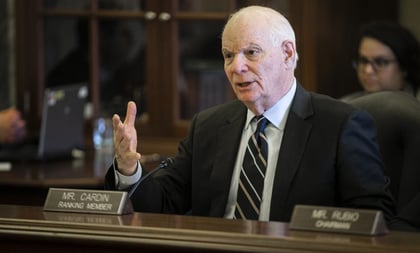Sens. Ben Cardin, D-Md., and Rob Portman, R-Ohio, reintroduced legislation late Monday that would raise the required minimum distribution age from 70 ½ to 75 and also help workers pay off their student loans.
Cardin and Portman’s Retirement Security and Savings Act of 2019 overlaps with some provisions in the Retirement Enhancement and Savings Act (RESA) of 2019, which was introduced on April 1, but RESA only raised the RMD age to 72.
The RESA bill, introduced by Senate Finance Committee Chairman Chuck Grassley, R-Iowa, and ranking member Ron Wyden, D-Ore., is similar to H.R. 1994, the Setting Every Community Up for Retirement Enhancement (SECURE) Act of 2019, which is expected to get a vote on the House floor before Memorial Day weekend.
“Passage of RESA remains a top priority for Sen. Wyden and me,” Grassley said Tuesday, adding that he hopes the House “will send its version of RESA over to us this month.”
The Senate Finance Committee held a hearing Tuesday morning to explore the challenges in the retirement system.
Cardin stated during the Tuesday morning hearing that “the first priority is to get the RESA bill across the finish line as soon as possible.”
Rep. John Yarmuth, chairman of the House Budget Committee, has scheduled a hearing for Wednesday on ways to improve retirement security in America.
The Portman-Cardin bill phases in the RMD age increase over several years and would update mortality tables to reflect longer life expectancies.
The bill would also expand the ability of employer-sponsored 403(b) plans to offer collective investment trusts (CITs), a mutual fund-like vehicle used in some 401(k)s and pension plans that can help plan sponsors cut costs.









 May 14, 2019 at 10:52 AM
May 14, 2019 at 10:52 AM











